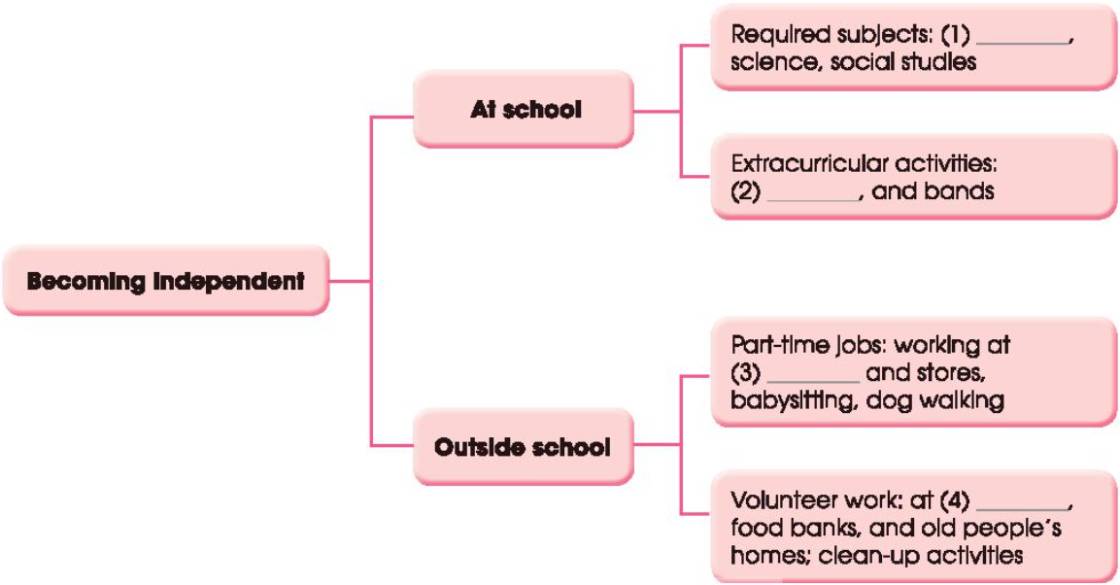Read the text below and complete the diagram. Use no more than THREE words for each gap.American parents usually encourage independence in their teenage children, and it is normal for teens to want more responsibility and freedom for their choices.American teenagers often start high school with a basic plan of classes they need to take to get a high school diploma. Some subjects like English, maths, science, or social studies are required, others can be selected. Schools also provide extracurric...
Đọc tiếp
Read the text below and complete the diagram. Use no more than THREE words for each gap.
American parents usually encourage independence in their teenage children, and it is normal for teens to want more responsibility and freedom for their choices.
American teenagers often start high school with a basic plan of classes they need to take to get a high school diploma. Some subjects like English, maths, science, or social studies are required, others can be selected. Schools also provide extracurricular activities, such as sports, clubs, and bands. American teenagers who plan to go to college study hard to get good grades. They are highly motivated and very confident, and take responsibility for their learning.
Many American teenagers have part-time jobs as they want to gain work experience and learn how to manage their money. Many teens work at fast-food restaurants and stores, or do babysitting, and dog walking for neighbours. They also volunteer at local hospitals, food banks, and old people's homes, or take part in clean-up activities to improve their neighbourhood. This community service counts towards the volunteer hours that some schools require for university admission.
The teenage years form an important period of their development that influences adult life. The main goal of this period for most American teenagers is becoming independent, and they work hard both at school and outside school to achieve this goal.


